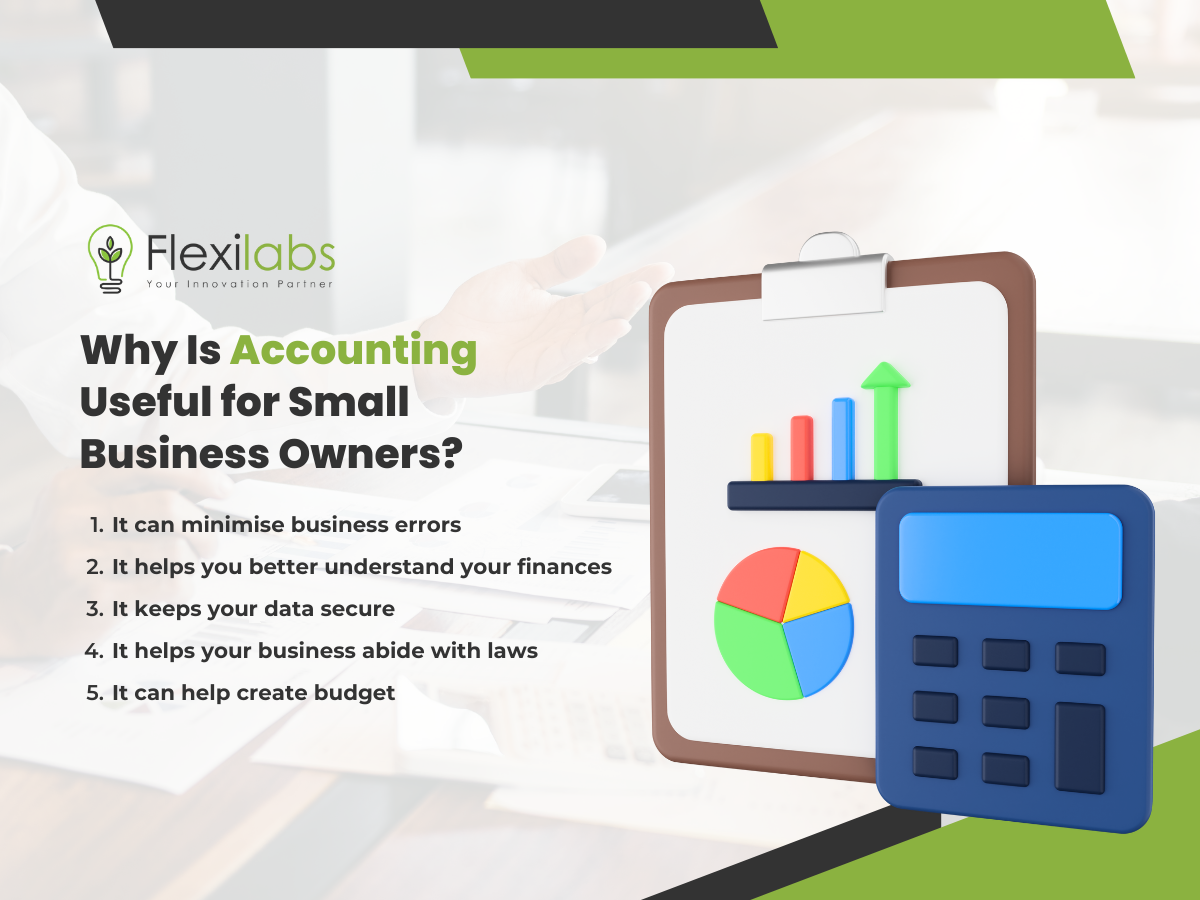Accounting is necessary for businesses, small or big. It helps entrepreneurs and business owners to keep track of all liabilities, expenses, revenue, and assets. This is necessary for all businesses as it helps them manage their resources effectively and efficiently.
For small businesses, accounting is critical, especially during the early stage. Since you have limited resources, accounting can help you maximise your money in every way and ensure sustainable growth. And to further help you understand, this article will tackle some aspects of small business accounting and the benefits it entails.
What is Small Business Accounting?
Accounting is not accessible even to small businesses. It involves keeping track of the financial transactions within the company to provide a clear picture of the company’s financial health.
With small business accounting, owners can make informed decisions about their finances and ensure that all taxes, liabilities, and other expenses are paid on time.
What does Small Business Accounting Entail?
As mentioned earlier, accounting is a critical business need that helps organisations track and analyse financial data. Accounting basics include understanding the principles of debits and credits, double-entry bookkeeping, financial statements, journal entries, and more. It includes recording, classifying, summarizing, and interpreting financial transactions to provide helpful information to decision-makers.
With a good understanding of these fundamentals, anyone who wants to pursue a career in accounting or finance. Here are some fundamental elements of small business accounting.
1. Balance Sheet or General Ledger
A balance sheet is a financial statement that provides an overview of a company’s assets, liabilities, and equity. It is used to measure the financial health of a business by showing its net worth at a given point in time. Likewise, you can use calculate your total assets using the balance sheet formula:
Total Assets = Total Liabilities + Total Equity
Similarly, having a balance sheet in your small business accounting can help investors, lenders, and other stakeholders make informed decisions about the company’s prospects.
2. Income Statement
A company’s income statement is a financial document that provides an overview of its financial performance over a given period. It shows the total revenue, expenses, and profit or loss for the period. The basic formula for an income statement is as indicated below:
Net Income = Revenues – Expenses
The income statement is one of the most important documents for investors and business owners alike, as it gives them an insight into how well the company performs financially. Additionally, it can be used to compare performance between different companies to make better investment decisions.
3. Cash Flow Statement
A cash flow statement is a financial document that shows how money flows in and out of a company over a period. It is used to analyse the liquidity and solvency of the business and measure its ability to generate cash. You can use this formula to calculate your free cash flow:
Free Cash Flow = Net income + Depreciation – Change in Working Capital – Capital Expenditure
Cash flow is an essential concept in small business accounting. Investors and creditors can use it to assess a company’s financial health and managers to make decisions about investments or other activities that could affect cash flows. In addition, knowing how cash flows in and out of your business can help you better manage your finances and make more informed decisions about allocating resources.
Why Is Accounting Useful for Small Business Owners?
As mentioned earlier, small business accounting is crucial to startup businesses. It provides various benefits. Likewise, here is some importance of accounting:

1. Accounting can minimise business errors
Having organised company finance is highly important for small businesses. It allows them to ensure that they have internal control over their liabilities and resources. Internal controls ensure that financial transactions are recorded accurately and that financial reports are reliable, providing stakeholders with confidence in the company’s financial health.
In addition, small business accounting can avoid errors that could otherwise affect their business and financial health.
2. Accounting helps you get a better understanding of your finances
As mentioned earlier, accounting is essential to understanding a company’s financial health. Here are some ways in which accounting can help with understanding a company’s financial health:
- Financial statements. Accounting for small businesses provides financial statements, including the income statement, balance sheet, and cash flow statement, which provide a snapshot of a company’s financial health. These statements show the company’s revenues, expenses, assets, liabilities, and cash flow, enabling stakeholders to evaluate its financial position.
- Ratio analysis. Small business accounting enables stakeholders to perform ratio analysis, which involves comparing different financial ratios to gain insights into a company’s financial health.
- Financial forecasting. Accounting for small businesses also provides the financial data required to prepare forecasts, which help stakeholders predict a company’s future financial health. These forecasts can be used to plan and allocate resources, make investment decisions, and evaluate the company’s performance.
3. Accounting keeps your data secure
Data security is important in any kind of business. An organisation might face fines, litigation, and other damages to its reputation if a data breach occurs. But with small business accounting, this can be avoided.
Accountants and CPA firms follow a set of standard security protocols when handling business finances. They are under ought to secure all collected sensitive information from clients and their employees, including addresses, bank information, social security number, and more. Several measures are put in place to mitigate data risks including:
- Contact regular security and data assessment, including assigning security roles, establishing confidentiality agreements, periodic risk assessments, business continuity, recovery plan, etc.
- Train CPAs to handle data on their devices.
- Install a firewall on its network to prevent a cyber breach.
- Establish physical security in their office.
4. Accounting helps small businesses abide laws
Another importance of accounting in small enterprises is compliance. Small business accounting helps companies comply with financial regulations and accounting standards. Compliance ensures that the company’s financial statements are accurate and reliable, providing stakeholders with a clear view of the company’s financial health.
5. Accounting can help create budgets
Small business accounting can also help companies in creating budgets. It helps business owners and financial decision-makers to see where their money is going. This determines areas with more budgets or needs to spend less.
Likewise, it can help a company avoid mistakes or predict future costs of operations and materials.
Start Your Accounting Today!
As a small business owner, you must organise your finances. In addition, you need to ensure that your resources are well spent, and all data are accurate. Likewise, you can use this article to help you manage your finances.
But if you are unfamiliar with these concepts, consult an expert! Flexilabs can help you! Contact us today!

